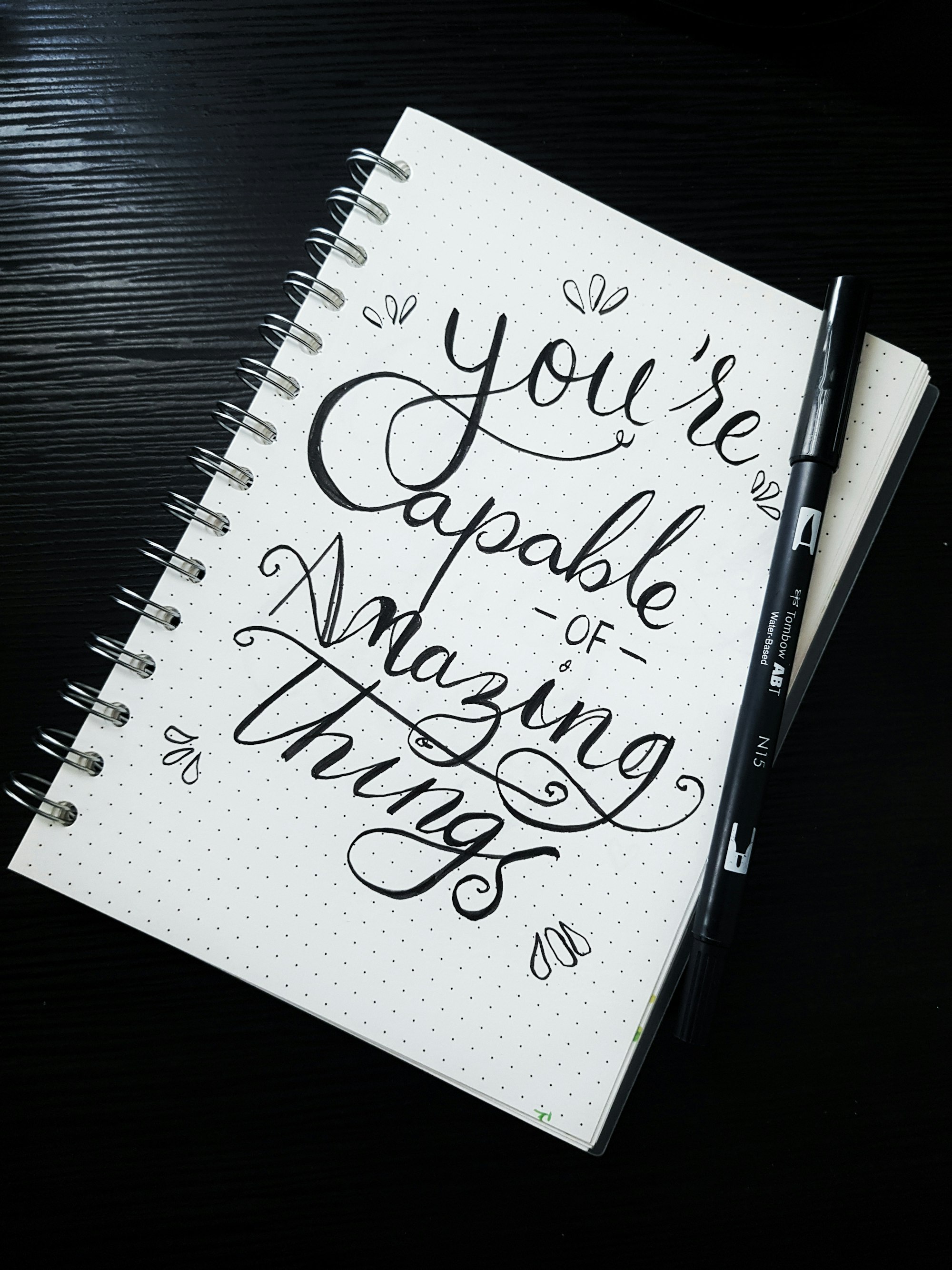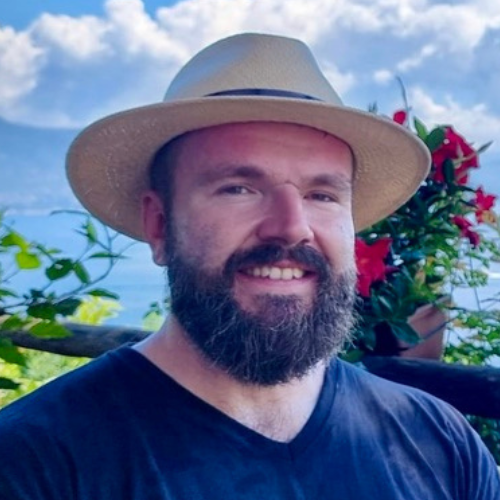What are simple lifestyle changes to make you feel present in life and build confidence?

Sometimes I like to write out the thoughts I have in my mind, and sometimes I look at what questions users in the productivity community have and try to help. This blog post belongs to the latter case, and I recently saw the following question:
What are simple lifestyle changes to make you feel present in life and build confidence?
The question is already well formulated because it asks "simple", not "easy". I think it needs a lot of diligence to reach the desired state. Therefore, these can be simple changes (i.e. easy to understand), but the implementation will also cost a lot of strength and perseverance. What I also like about the question is that it asks about behaviour change, not one-time actions. This is the right approach.

Achieving presence in life & building confidence
Before answering the question, I need to translate the goals "Presence in Life" and "Building Confidence" for me because I have never thought this way, and it feels a bit abstract. My spontaneous concretization proposals for the sake of this article are:
- You are the master of your own agenda. This means you also pursue your own goals and do not only work off your boss's or whoever's agenda.
- You can go through the world with an open mind (i.e., explicitly not a defensive mindset). This means you can fully concentrate on active listening and try to put yourself in the other person's shoes instead of just thinking about your position and problems.
- You create value (tangible and intangible) and are valued by others for it.
- But you are appreciated just like that, too, without creating anything, for simply being. (By the way, that's easy because most people have that already. They don't have to work on it. They don't know because they can't accept being appreciated "just like that", but that's another topic.)
- You have learned that your opinion and assessments are explicitly expected, and you don't have to withhold them for presumed reasons ("I'm unsure," "No one cares about my opinion," "I'm the most inexperienced one here," etc.)
- You have a fundamentally positive mindset, i.e. I know that many problems that seem impossible at the moment often seem small in retrospect and have been overcome after all. The world wants to do you good, and accordingly, everything will work out eventually.
- You don't just accept things "that have always been that way." Especially in such situations, you follow your own intuition. You have an inner compass of values that drives and directs you. You are protected against "Groupthinking".
- You gain your energy from within yourself and don't rely on it coming from the feedback of others. This allows you to overcome even the direst rapids, where everyone else takes a step back while you take a step forward. Of course, you still appreciate positive and critical feedback and try to consider it when it seems possible and meaningful to you.
- And most important: You can be and show everyone who you truly are and what you think without having to pretend. This authenticity allows you to save enormous energy that you would otherwise have to expend to maintain your "masks". (Side note: most people even have several layers of such masks; you can recognize that in stressful times when they don't have the energy to maintain them, you finally see their true "self". So especially in disputes.).
Whew, now that I've written this down in more concrete form, even "simple" seems pretty challenging. I hope I'm not overloading the question too much, so I'll stop brainstorming and come up with concrete answers to the user's question instead.

9 simple lifestyle changes to make you feel present in life and build confidence
- Implement a morning routine. People on the web are already making fun of the fact that the default productivity tip is always a morning routine. But it's true: you have the most energy and willpower in the morning, and working on your own agenda and goals before your job will feel super fulfilling. You become the master of your time!
- Create a journal where you reflect on the past and present. I started writing a diary three years ago, and at first thought, it was a waste of time and procrastination because I rarely look at old entries. Now I know that "remembering" is not the primary purpose of such a journal. The real benefit is to get things out of your head, concretize abstract thoughts and make the intangible progress of your journey tangible. It is soothing to see problems disappear over time that seemed impossible in the past.
- Plan your year/quarter/moat/week/day: Plan your agenda on different time horizons: What goals do you want to achieve this year? What are the milestones for the current quarter? What concerns do you have this month? What deliverables do you want to complete this week? Which tasks do you have tomorrow? Review your daily schedule starting the night before, the weekly schedule on Saturdays, the monthly schedule on the last weekend of the previous month, the quarter at the beginning of the quarter, and the year ahead at Christmas.
- Visualize your future self and win energy by that: To make a plan, you need a North Star. Where do you want to go? How do you imagine your future? What do you want to look like? How do you want to feel? Who do you want to be with you? Imagine this when you go for a walk, fall asleep, or doze after waking up. This visualization will give you the energy and direction to plan and execute your agenda.
- Change positions. Think in the shoes of others, and you will think less about yourself. Unfortunately, in the Western world, we are conditioned from childhood to think strictly from the first-person perspective. When everyone thinks of themselves, everyone is considered. However, the key to serenity and happiness is the habit of empathizing with their views whenever you are dealing with other people. Why are they telling you what they are saying? What has their day been like so far? What is their context? What are their emotions? Why do they act the way they do? Listen actively and listen for nuances. If you do this, you will never feel attacked, for example, because you will realize that 100% of the time, your counterpart's (passive) aggression has nothing to do with you but is sourced with a conflict that your counterpart is having with himself. When you think about others, you have the less mental energy to think about your own problems or, worse, to imagine new problems for yourself. It is well-known that your idling brain will think about potential (real and unreal) problems and social issues. The area in question fires up when you have free mental capacity. It can't do that when you think about others all the time.
- Get rid of distractions: One of the best ways to feel more present is to get rid of distractions. This means turning off your phone, putting away your laptop, and silencing any other devices that might take your attention away from the present moment.
- Protect your agenda, no matter what. If you have made your plan (see point 3), you must allocate time to execute it. And it would be best if you rigorously defended this time. You might protect it from trivial distractions (see point 6), but it also could be very urgent or critical-sounding emails and tasks of your colleagues at work. Tip: think about how urgent or essential something is from the perspective of the person who wants to delegate the task to you. If it doesn't seem urgent to you, think about it in a week at the earliest. If it is not essential, then you reject it right away.
- Move a lot whenever you can. I have a strict habit of taking two long walks a day (1.5 hours at lunchtime and another hour in the late afternoon) and exercising for 45 minutes in the morning. My Apple Watch tracks 4 hours of exercise every day on average. That sounds like a considerable time investment initially, but it's the key enabler for my productivity. Walking makes me feel connected to the world and humanity (encounters while walking). They help me maintain and improve my health. During my walks, I learn (audiobooks and podcasts), and I solve the most complex tasks. While walking, it's just easier to think and brainstorm. Many work meetings where you don't have to present anything can also be done wonderfully on the go.
- Seek solitude. The real you unfold only when you are alone. You must be alone if you need to do some serious thinking and get into the flow. It doesn't have to be a cabin in the woods like in "Walden", but when in doubt, it's your office with a closed door, the internet turned off, and focus music on your ears.
I hope these points inspire you if feeling present and building confidence matters for you.
I want to finish this blog article with a quote from "Digital Minismalism" about points 8 and 9, which are especially important to me.
“Only thoughts reached by walking have value.”
Friedrich Nietzsche
"As Gros recounts, during his first summer on the Upper Engadine, Nietzsche began to walk up to eight hours a day. During these walks he would think, eventually filling six small notebooks with the prose that became The Wanderer and His Shadow, the first of many influential books he wrote during a decade powered by ambulation."
Digital Minimalism: On Living Better with Less Technology
Feel free to add your tips and thoughts to this page's comment section, Twitter or LinkedIn!
Best regards,
-- Martin from Deliberate-Diligence.com

Discussion